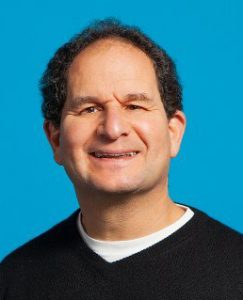Many evangelicals oppose abortion while supporting the death penalty because churches have failed to teach what it means to be holistically pro-life, Ohio minister Rich Nathan said during a webinar hosted by Equal Justice USA.
Nathan is the founding pastor of Vineyard Columbus, a multi-ethnic, evangelical church whose “life in the womb, life on the margins” approach to ministry opposes the death penalty while serving the poor, the homeless, undocumented immigrants and mothers with unexpected pregnancies.
“God’s heart inclines toward those that the rest of society despises. In the first century it could be a leper, or it could be a woman with a flow of blood, or tax collectors or prostitutes that were despised. We want to have the same inclination of heart as he does,” Nathan said.
He acknowledged most evangelicals do not share that perspective and choose instead to define “pro-life” solely as opposing abortion. “I think it’s the function of discipleship in our churches. I would venture to say that the vast majority of people within the evangelical tradition have not heard one single sermon in their lives on capital punishment.”
“Can we at least talk about all the issues that the Bible talks about, and not just the few that are political?”
The lack of discipleship extends to immigration and how Scripture directs the church and Christians to treat the immigrants in their midst, he added. “There’s been such an absolute radio silence on some of these issues. Can we change that within those churches that have claimed the Bible as the heart of what they do? Can we at least talk about all the issues that the Bible talks about, and not just the few that are political?”
But many Americans, including people of faith, have succumbed to a tendency to dehumanize death row inmates and others classified as criminals, said Sam Heath, webinar moderator and manager of EJUSA’s Evangelical Network.

Rich Nathan
“The way we as a nation respond to violence, harm and crime is usually a fear-based response of self-protection, a desire to ‘other’ people, or to remove others or separate ourselves from those that are criminals,” he said. “We’ve created some divisions within society.”
The response has birthed a mass incarceration system that includes 5,000 jails or prisons housing nearly 2 million inmates, Heath said. In addition to the federal government and U.S. military, 27 states still have the death penalty. “The United States has about 4% of the world’s population yet 20% of the world’s prisoners. One in 50 kids has a parent in prison.”
The grim reality of the U.S. criminal legal system makes it imperative congregations develop “a united, comprehensive or holistically pro-life” outlook that enables them to define what it means to actually “love life,” he asserted.
Nathan said that should start with a fundamental belief that life is a gift from God and all people are made in God’s image.
Immigrants and “people in the womb, those with severe intellectual disabilities, physical disabilities, people who are institutionalized due to dementia or Alzheimer’s, and people who have been convicted of murder are made in the image of God, and that’s something that can’t be forfeited,” he said.
As illustrated in the parable of the Good Samaritan, Jesus’ ministry was dedicated to tearing down the “line drawing” people do to erect barriers between themselves and those who exist on the margins of society, he added. “The point of the parable is to say, ‘Who are you willing to be a neighbor to?’ And Jesus is pushing us toward the widest possible definition of neighbor. So, can you include the entire human family and not draw lines — that’s the heart of Jesus.”
Vineyard Columbus was drawn into its approach to ministry initially through its Value Life ministry, which provides comprehensive support for women through the first two years of motherhood.
“We were not going to, as a church, go along with the culture-war view of pro-life, which is we either have to choose to support the mother or choose to support their unborn child. We said, ‘Why not both? Why don’t we come alongside of women and support women” with jobs, mentors, housing and transportation?
From there, the congregation developed a medical clinic, immigration law clinic and outreach to homeless people.
For the church, that’s all part of being holistically pro-life, Nathan said. “In Jesus we just see this consistent hope of redemption. Nobody is fixed. You are who you are. But Christ changes us. Christ transforms us. Christ heals us. Jesus redeems. And that’s what we Christians believe about people — that he changes people’s lives and that includes people on death row.”


